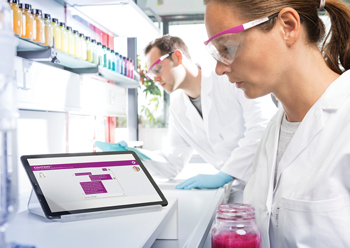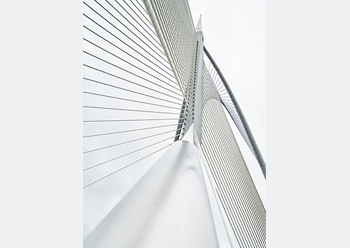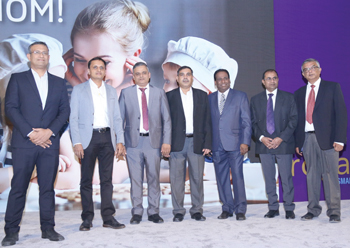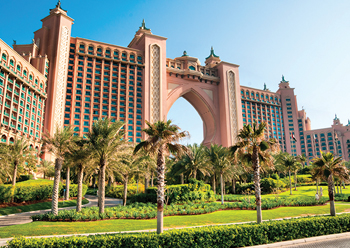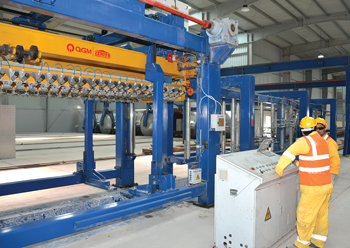
 Kingdom Group’s AAC factory ... state of the art.
Kingdom Group’s AAC factory ... state of the art.
Expansion, upgrade, customer satisfaction and efficiency have been watchwords at Bahrain-based Kingdom Group over the past seven years.
This growth has been made possible through investment in its own private port, state-of-the-art equipment to ensure quality and speedy delivery, and expansion of fleet and staff, Ahmed Khalaf, CEO of Kingdom Group, tells Gulf Construction.
The group has been aiming to provide end-to-end solutions that extend right from the import of construction raw materials to investment in real estate developments. It has also been focusing on niche products and establishing large facilities, thanks to the support of its shareholders which has enabled it to reinvest continuously, he adds.
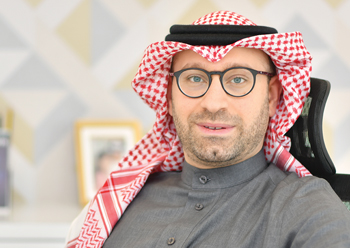 |
|
Khalaf ...concentrating on timely delivery. |
According to Khalaf, as the company provides end-to-end solutions, it can offer better pricing, higher efficiency, and superior quality, thanks to the import of raw materials from reputed sources and its modern facilities that are supported by a state-of-the-art laboratory. Also, given its in-house facilities, the Kingdom Group is dynamic and can respond quickly to market demands and trends.
Kingdom Group currently commands around 15 per cent of the market share in the sectors it operates in, namely readymix, cement and concrete blocks – which account for the bulk of its revenue – as well as sandwashing and dredging, and is aggressively spearheading a drive to boost efficiency to maintain its competitive edge in the market.
Some of the leading companies under the Kingdom Group umbrella include its manufacturing ventures Kingdom Blocks and Kingdom Readymix; its trading operation Kingdom Cement; as well as its asphalt and contracting company Kingdom Asphalt; and Kingdom Sandwashing and Dredging. The group has its state-of-the-art facilities spread over three sites in Hidd, which are in close proximity to each other, as well as one in Maameer. It has a staff strength of 500-plus employees.
Kingdom Blocks manufactures kerbs, building blocks, paving bricks and its latest offering – autoclaved aerated concrete (AAC).
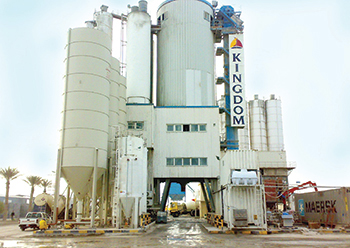 |
|
Kingdom Group has an extensive range of facilities to meet the demands of the building construction sector. |
The new production line for AAC blocks, established last year (2019), is one of its kind in Bahrain and has given the group a competitive edge in the market as this type of block was previously being imported from Kuwait and Saudi Arabia.
The production facility has a capacity of 300,000 cu m per year of AAC blocks, sufficient to meet the demands of the Bahrain market. Within its first year of operations, the plant is already supplying just below 50 per cent of the requirements of the country.
The factory occupies a 35,000-sq-m site in Hidd using technology from Germany’s Zenith, which is owned by the China-based QGM Group, a global provider of integrated block-making solutions.
Kingdom Cement, supported by the group’s own port facilities, procures cement from well-known sources in the region. It has cement packaging facilities to meet a significant share of Bahrain’s requirements of ordinary Portland cement (OPC) and sulphur-resistant cement (SRC).
The group’s port is the largest private port in Bahrain. The German-designed port facility and adjacent cement operation, set up in 2014, accommodates the largest cement silos in Bahrain with 18,000 tonnes of storage capacity, according to Khalaf.
Meanwhile, Kingdom Readymix, claimed to be one of the largest readymix facilities in Bahrain, operates four stationary batching plants and owns a large fleet of cement mixers.
.jpg) |
|
Kingdom Group’s private port and adjacent cement storage facilities. |
Khalaf says speed is of essence when delivering construction materials to contractors that have to meet tight schedules. Also, the quality of material is a key differentiator, and Kingdom Group has been making every effort to procure raw materials from renowned sources in Saudi Arabia, the UAE and Oman.
“We are concentrating on timely delivery as it reduces cost for the contractor,” he says.
In the readymix sector, where swift delivery is vital to combat the high temperatures that the region faces, the company has made significant investments in equipment over the past two years.
Kingdom Blocks, Kingdom Cement and Kingdom Readymix – which are now state-of-the-art operations – have seen exponential growth over the past few years and Khalaf is currently focusing on growing Kingdom Asphalt, “which is not where we want it to be”, according to him.
Kingdom Asphalt, which was established in 2004, is expanding to meet the growing infrastructure requirements of the public and private sectors.
Upgrades are also under way at Kingdom Sandwashing and Dredging, which was set up in 2004. The company dredges sand from the seabed using its marine dredger, and washes it for use in building materials.
The company is in the process of commissioning a state-of-the-art sandwashing facility procured from wet processing equipment specialist CDE of Ireland. The facility will be the largest of its kind in Bahrain with a capacity of 250 tonnes per hour when it is brought on stream in the first quarter of 2020.
Kingdom Group’s products have gone into virtually every landmark project in Bahrain. These include the new terminal at Bahrain International Airport, Al Tijara Tower in the Diplomatic Area, Marassi Galleria mall at Marassi Al Bahrain in Diyar Al Muharraq, Hanging Gardens at Dilmunia, Al Sahel Resort at Al Jazayr Beach in Zallaq, Jumeirah Royal Saray Bahrain in Al Seef District, Art Rotana in Amwaj, the oncology centre at King Hamad University Hospital, S Hotel and Seef East and West towers.
It has also been involved in numerous housing projects being built for Bahrain’s Housing Ministry in Hidd, Salman Town and elsewhere.
Other projects handled by the company include a sewage treatment plant (STP) in Hidd for Samsung as part of the Muharraq STP and deep gravity sewer (DGS) system.
In supplying these projects, the Kingdom Group has also catered to special requirements. For instance, for the Marassi Galleria, the company has designed higher density AAC blocks, which are now being delivered.
In the readymix sector, the company has handled several projects that demanded very specialised mix design and technical data which were achieved by the team’s hard work.
In terms of technology, Khalaf – who is a software engineer – has headed a team that developed an in-house solution that has helped the group to expand and closely monitor its growth and handle the company’s transition into the VAT framework.
Looking ahead at 2020, Khalaf is keen on developing a research and development (R&D) and manufacturing centre to cater to the admixture requirements of Bahrain.
“We are looking at collaborating with an international company to set up an R&D centre to develop specialised construction products, since we have the facilities,” he says.
Also as part of its corporate social responsibility (CSR) strategy, Kingdom Group is aiming to bring together like-minded building material producers in the country to set up a training institute in Bahrain to encourage Bahrainis to join this vital segment of the construction industry and instil in them the required skills.
“There is a lack of trained Bahrainis in this sector as they do not come with the same qualifications as the expatriates. There are a lot of openings available and companies like ours would love to employ technically qualified Bahrainis, but we cannot find staff of the right calibre,” he points out.
As part of its CSR, Kingdom Group intends to rope in private companies as well as government authorities to offer education and hands-on training in the construction sector.
“We already have the approval from our shareholders to go ahead with the plan, which could cover plant operators, maintenance teams, technicians and software engineers,” he concludes.







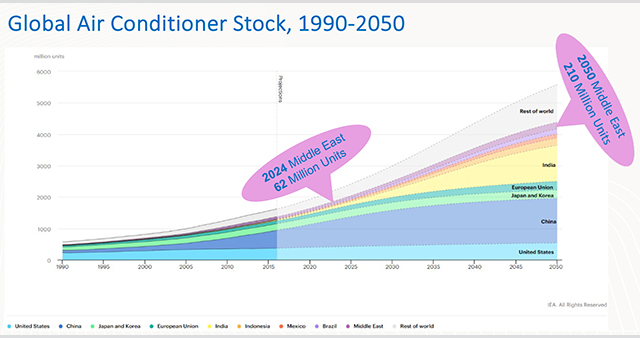






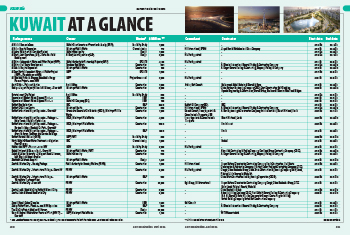






_0001.jpg)


.jpg)




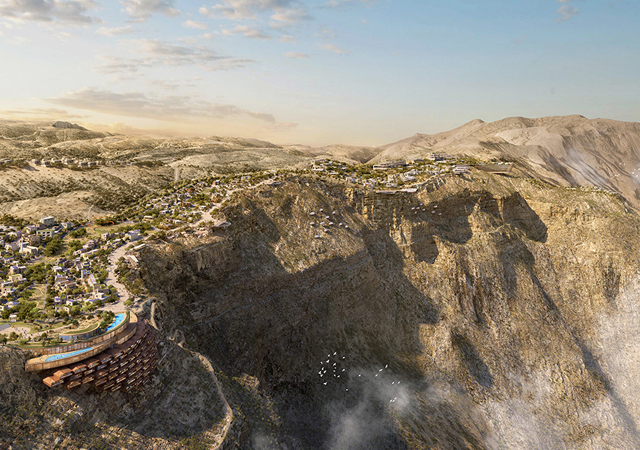











.jpg)








.jpg)




